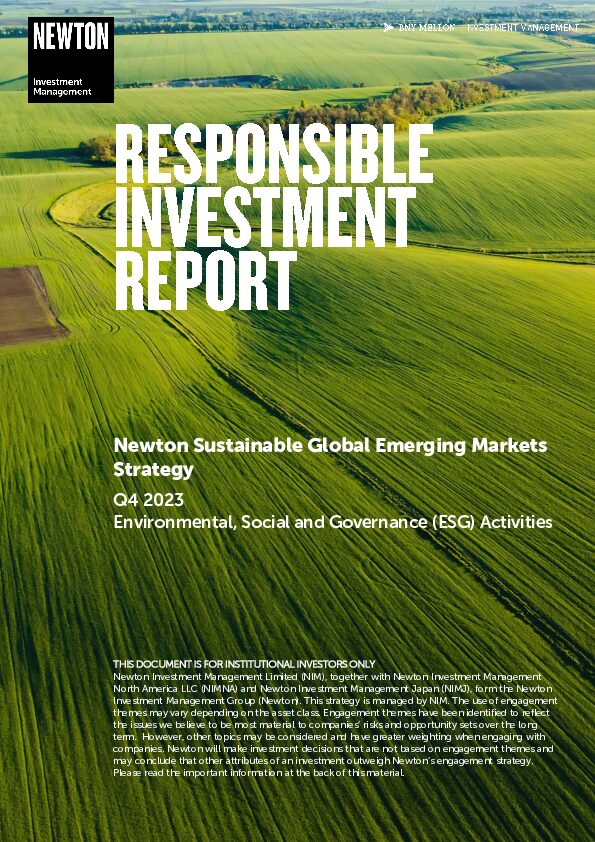This strategy is offered by Newton Investment Management Ltd (‘NIM’). NIM is part of the Newton Investment Management Group.
Our Philosophy and Process
Harnessing Newton’s global analyst resources, and adhering to our investment framework focused on fundamentals, themes, valuations and ESG considerations.
Three overarching themes aligned with UN Sustainable Development Goals – Earth, health and wealth.
Our sustainable ‘red lines’ are built on a combination of exclusions that effectively avoid investments in security issuers involved in or that generate a material proportion of revenues from areas of activity that we deem to be harmful from a social and/or environmental perspective.
Focus on innovative companies and dynamic management teams that provide solutions and benefit from growth opportunities.
Every time we consider a security or look at an industry or country, it’s in the context of what’s happening across the world. We believe the investment landscape is shaped over the long term by some key trends, and we use a range of global investment themes to capture these.
Strategy Profile
-
Objective
- To achieve long-term capital growth by investing in emerging-market securities that demonstrate attractive investment attributes and are deemed by Newton to be sustainable.
-
Performance benchmark
- MSCI Emerging Markets Index (NDR)
-
Typical number of equity holdings
- Typically 45-65 holdings
-
Strategy inception
- December 2021
Investment Team
-
- Our Sustainable Global Emerging Markets strategy is managed by a team of two portfolio managers, who form part of Newton’s equity opportunities team. Our dedicated responsible investment team is an integral part of the investment process and has the power of veto. Guided by our global investment themes, the team seeks to identify opportunities and risks through research and debate.
Want to find out more?
Your capital may be at risk. The value of investments and the income from them can fall as well as rise and investors may not get back the original amount invested.












